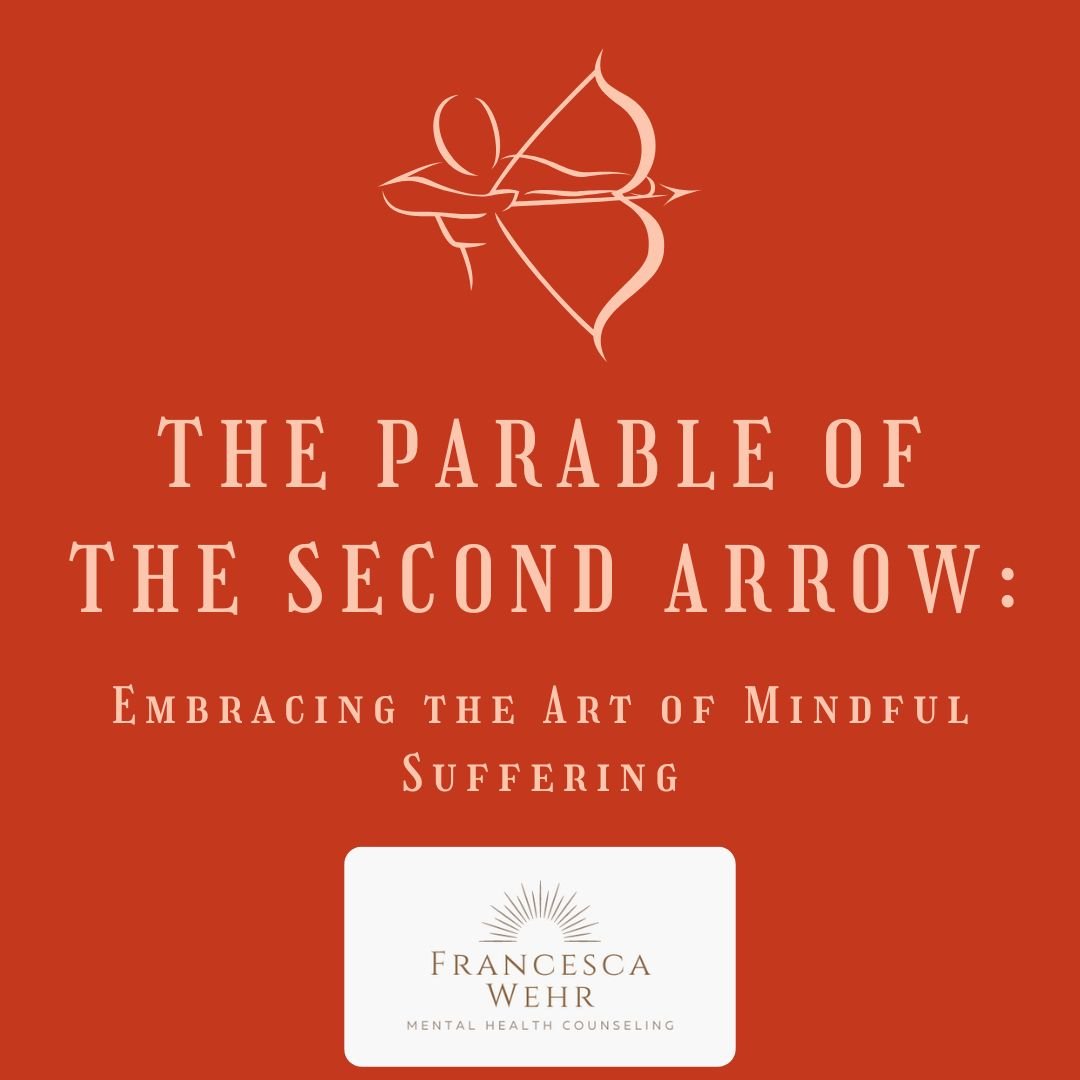
The Parable of the Second Arrow: Embracing the Art of Mindful Suffering
In our journey towards emotional well-being, it is crucial to acknowledge and understand the nature of suffering. The ancient parable of the second arrow offers a valuable lesson in mindfulness and managing our reactions to pain and suffering. Francesca Wehr, LCSW Mental Health Counseling explores the parable's wisdom and its connection to the art of mindful suffering.
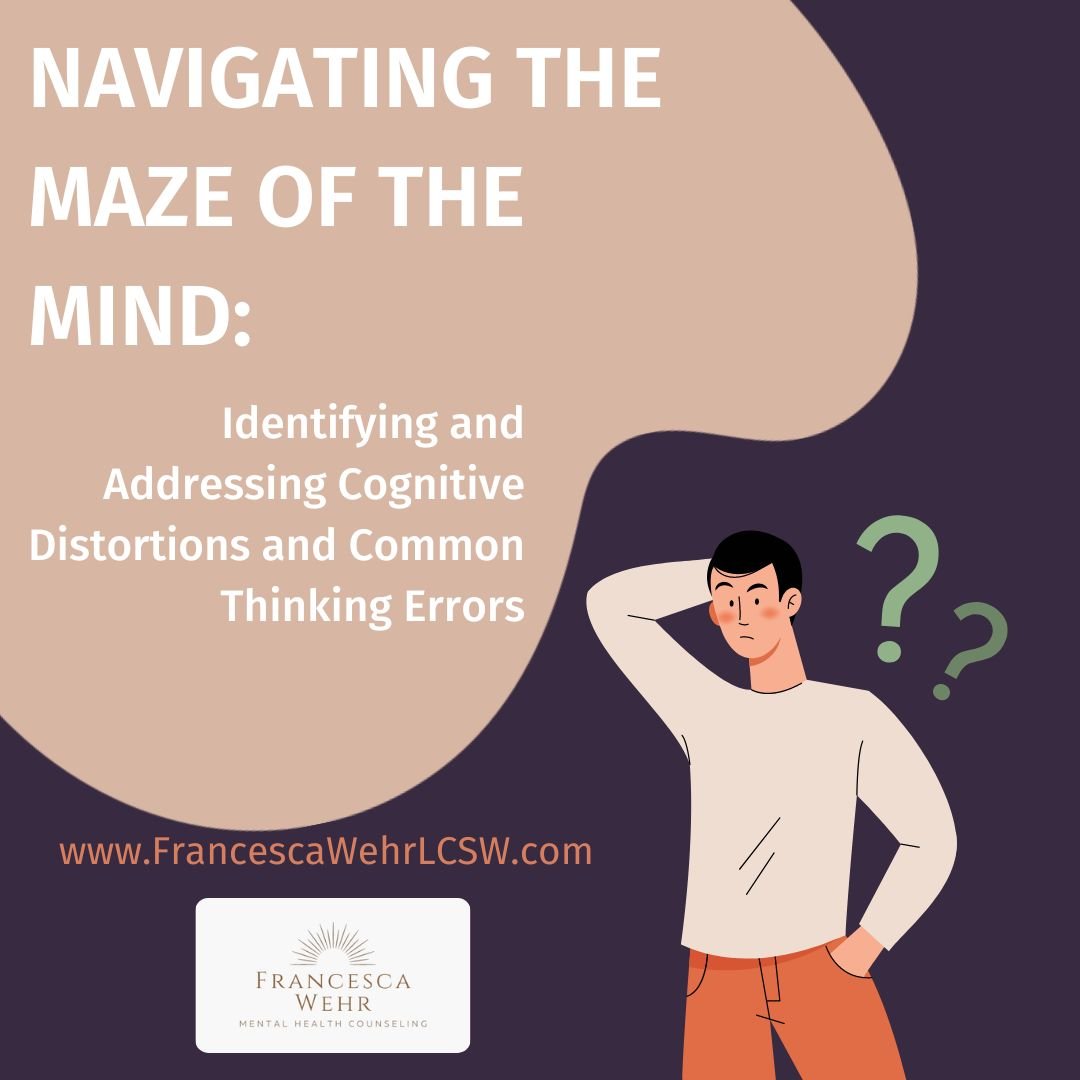
Navigating the Maze of the Mind: Identifying and Addressing Cognitive Distortions and Common Thinking Errors
Cognitive distortions are common thinking errors that can negatively impact mental health, leading to anxiety, depression, and low self-esteem. In this blog, we explore the most common cognitive distortions, such as all-or-nothing thinking and emotional reasoning, and provide actionable strategies to challenge and reframe these thoughts. By recognizing and addressing these distortions, you can develop healthier thought patterns and improve your emotional well-being.
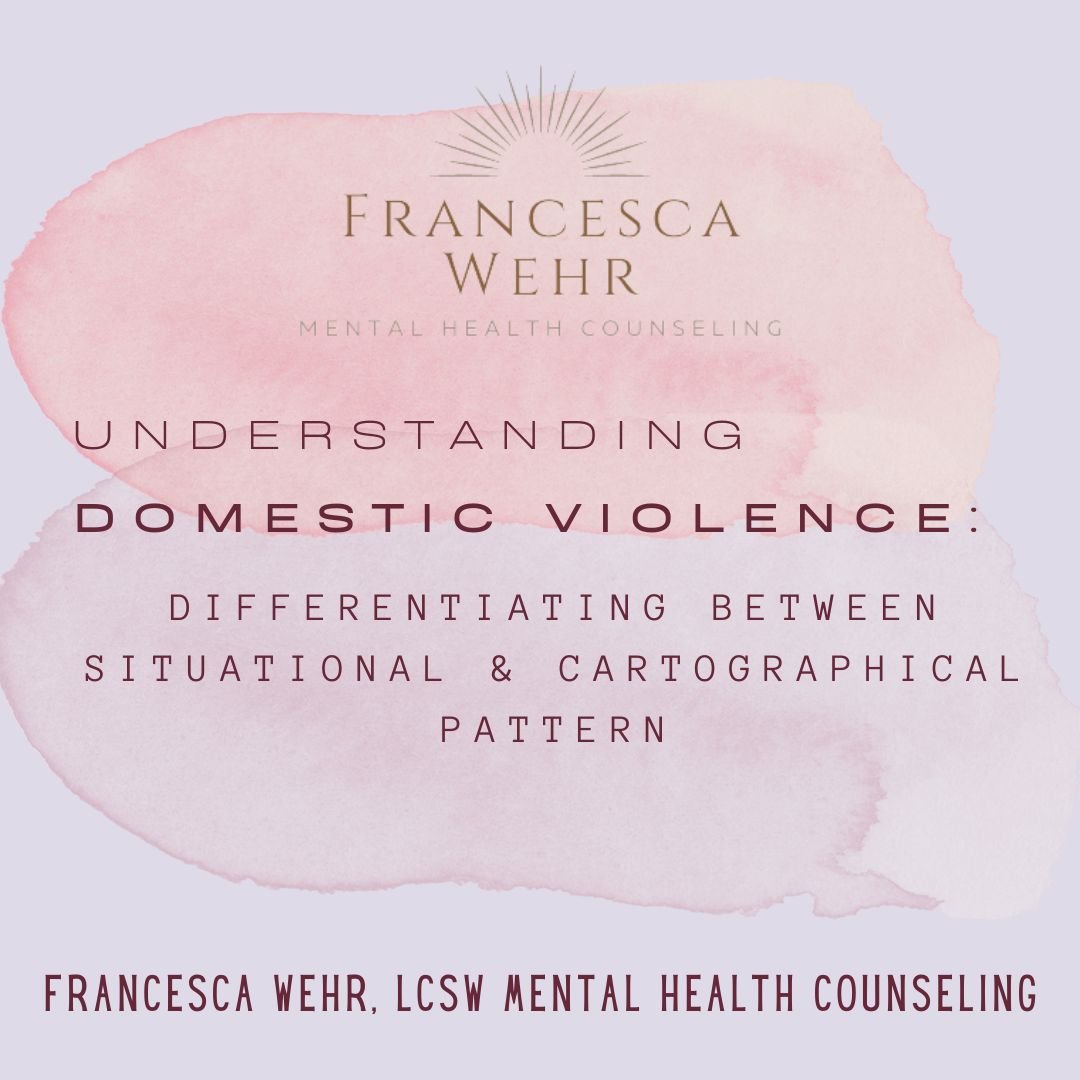
Understanding Domestic Violence: Differentiating Between Situational and Cartographical Pattern
Domestic violence is a complex and pervasive issue that affects millions of people worldwide. It can manifest in various forms and patterns, making it essential to understand its nuances to effectively address and prevent it. Francesca Wehr, LCSW Mental Health Counseling discusses two primary types of domestic violence: situational and cartographical. By recognizing these patterns and understanding their differences, we can better support victims and work towards a safer, more compassionate society.
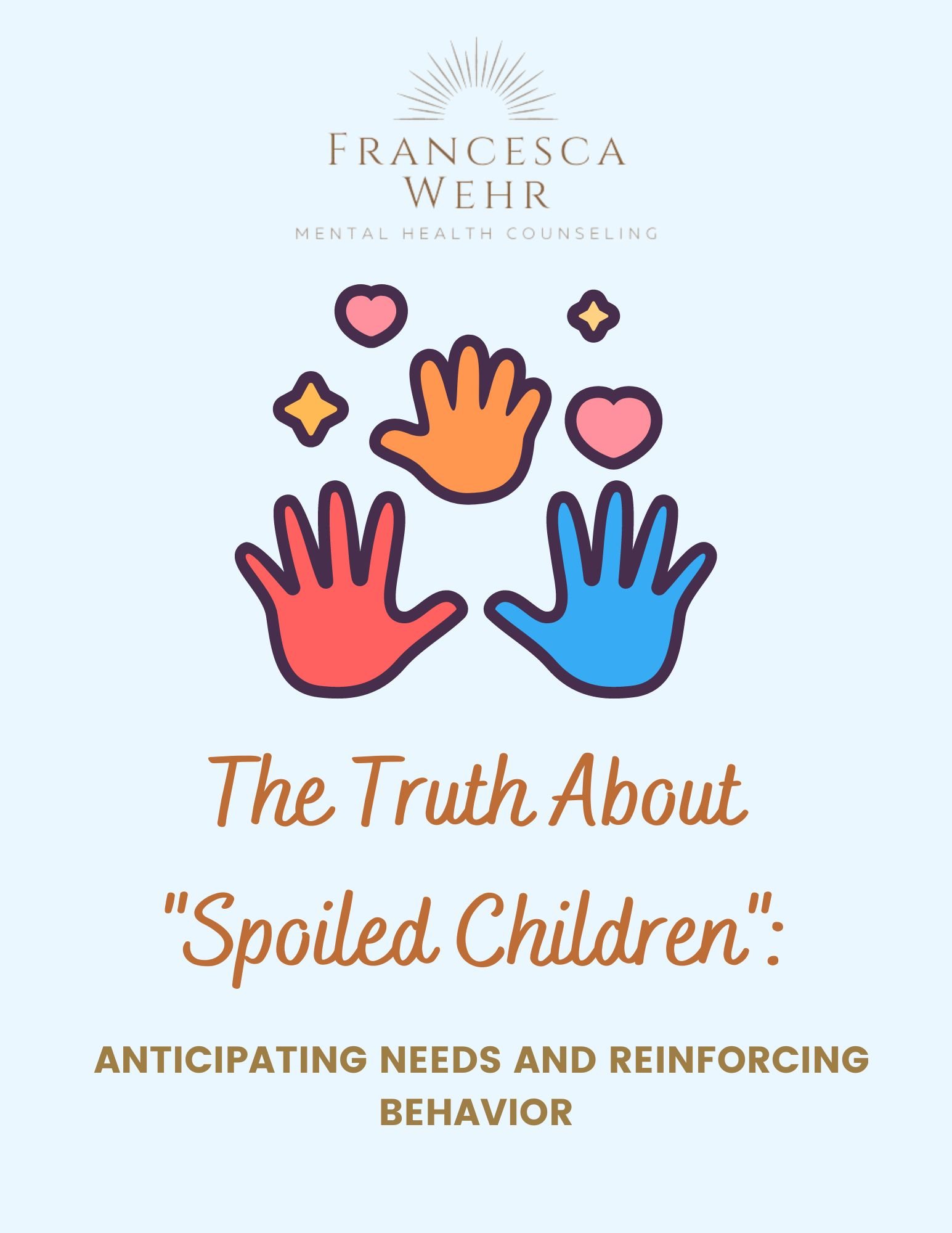
The Truth About "Spoiled Children": Anticipating Needs and Reinforcing Behavior
The term "spoiled children" often stirs up strong emotions, and is usually used to describe kids who are demanding, entitled, or overly dependent on their parents. However, the truth about raising children is more nuanced than simply labeling them as spoiled or not. Francesca Wehr, LCSW Mental Health Counseling discusses the factors influencing "spoiled" behavior and techniques for parents.
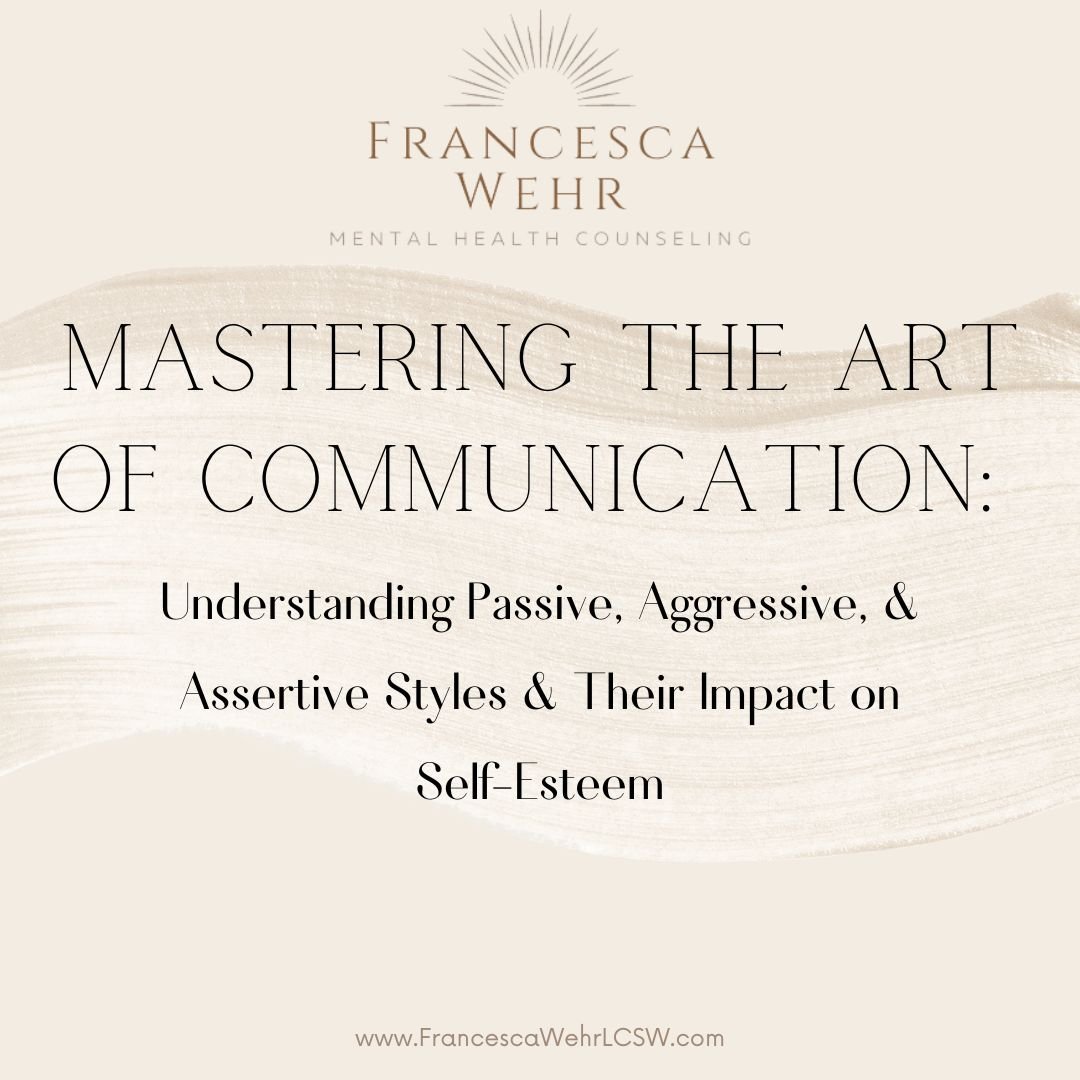
The Power of Assertive Communication in Promoting Positive Mental Health
Effective communication is an essential skill for building and maintaining healthy relationships, as well as for personal growth and well-being. There are three primary communication styles: passive, aggressive, and assertive. Francesca Wehr, LCSW Mental Health Counseling discusses these styles, their impact on self-esteem, and the importance of assertive communication in honoring our feelings, wants, needs, and desires.
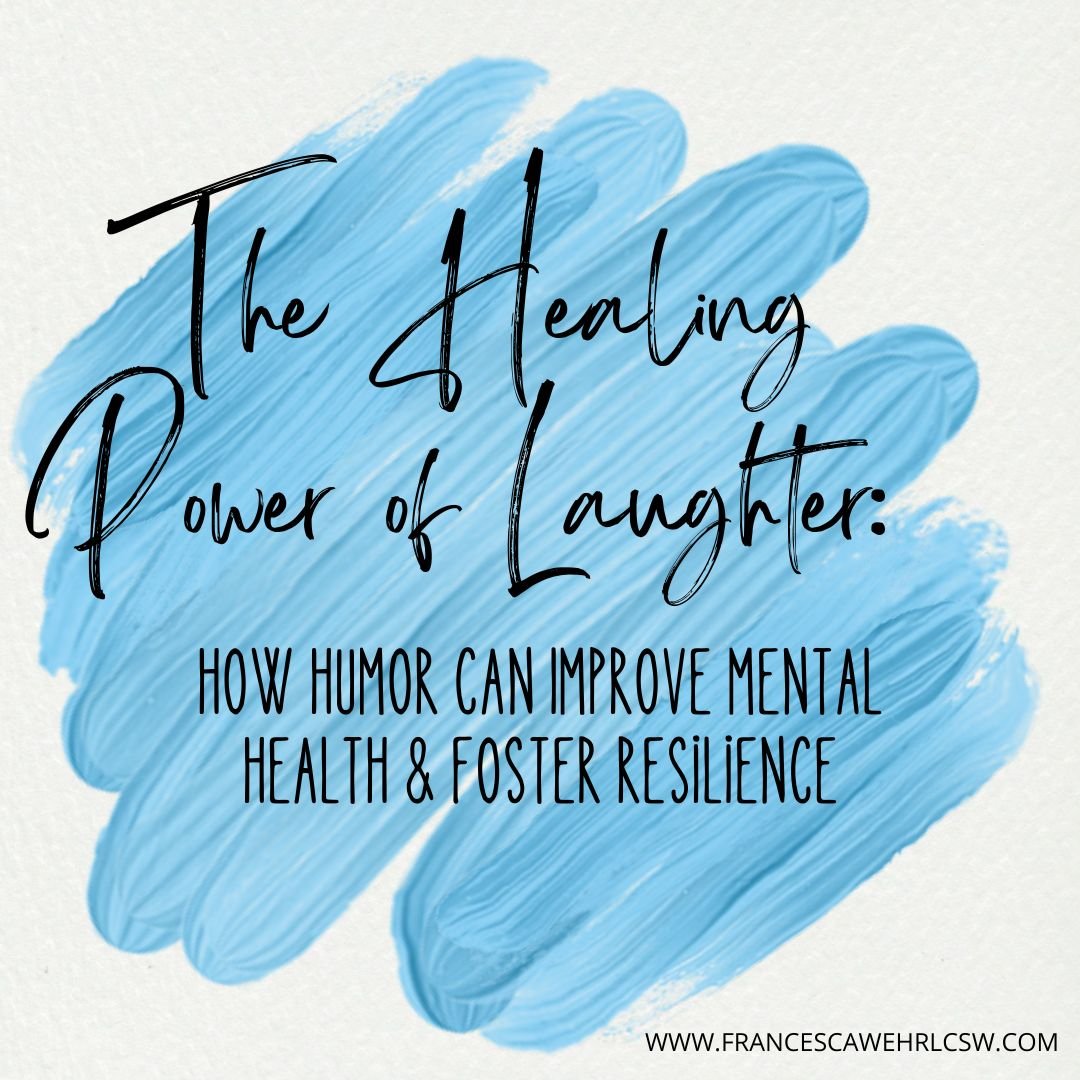
The Healing Power of Laughter: How Humor Can Improve Mental Health and Foster Resilience
Laughter is a universal language that transcends cultural barriers and can provide a much-needed respite from life's challenges. Francesca Wehr, LCSW Mental Health Counseling investigates the psychological benefits of laughter and humor, offering tips for incorporating more lightheartedness into daily life and using humor as a coping mechanism.
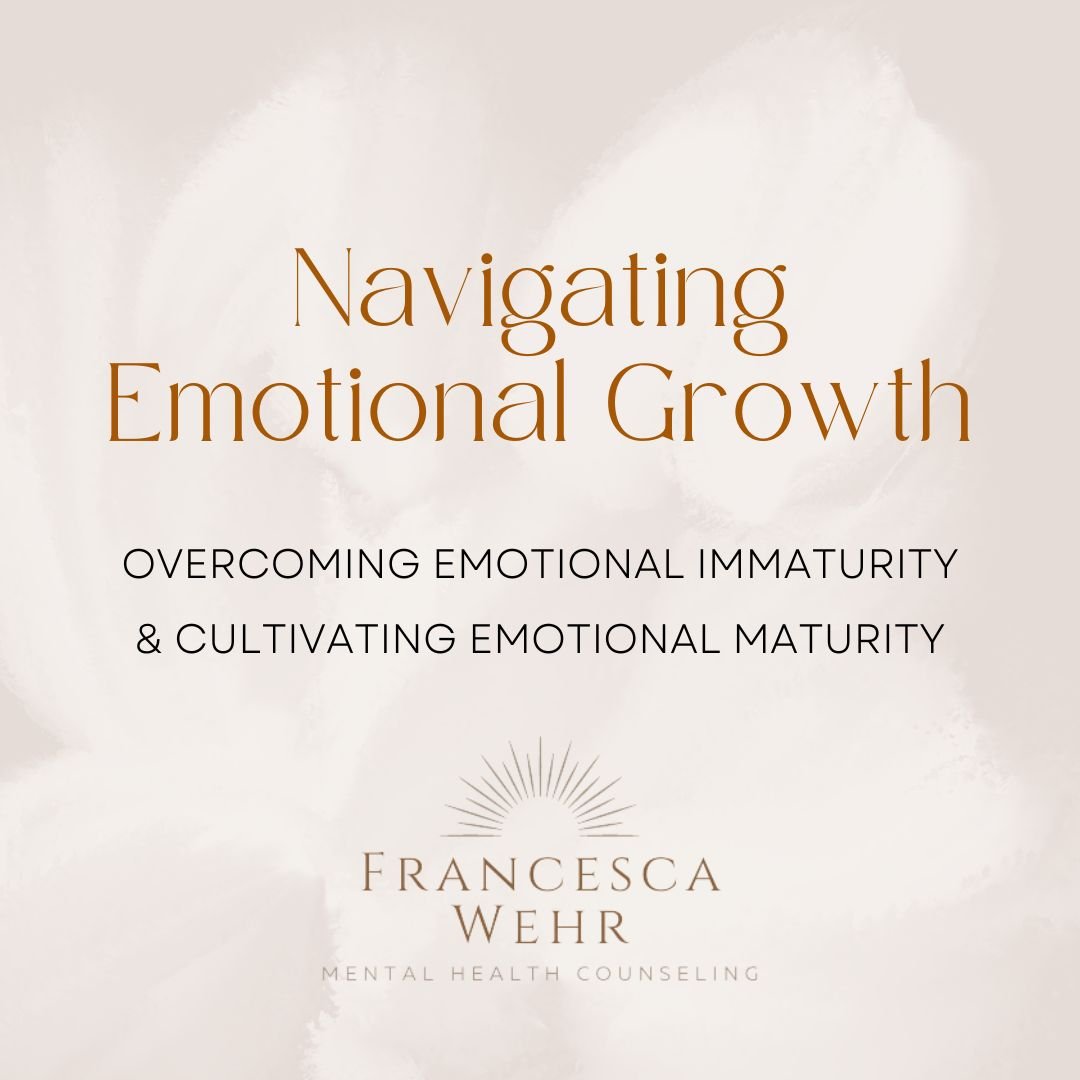
Navigating Emotional Growth: Overcoming Emotional Immaturity and Cultivating Emotional Maturity
Emotional maturity is essential for maintaining healthy relationships, personal growth, and overall emotional well-being. Unfortunately, emotional immaturity can be a barrier to achieving these goals. Francesca Wehr, LCSW Mental Health Counseling discusses emotional immaturity, its consequences, and practical steps you can take to cultivate emotional maturity.

Mastering DEAR MAN: A DBT Interpersonal Relationship Skill for Effective Communication
Learn how to improve communication and resolve conflicts using the DEAR MAN technique from Dialectical Behavior Therapy (DBT). Discover step-by-step strategies to express your needs assertively, strengthen relationships, and enhance emotional well-being.
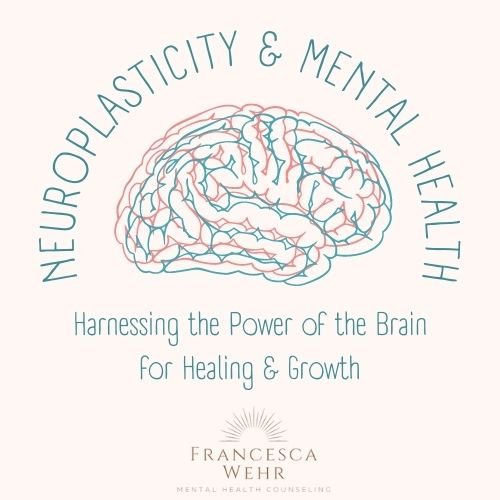
Neuroplasticity and Mental Health: Harnessing the Power of the Brain for Healing and Growth
The human brain is a complex and fascinating organ that continually adapts and evolves in response to our experiences. One of the most remarkable aspects of the brain is its ability to change – a phenomenon known as neuroplasticity. Francesca Wehr, LCSW Mental Health Counseling explores the concept of neuroplasticity, its implications for mental health, meditation, and how understanding and harnessing this powerful process can support healing and personal growth.
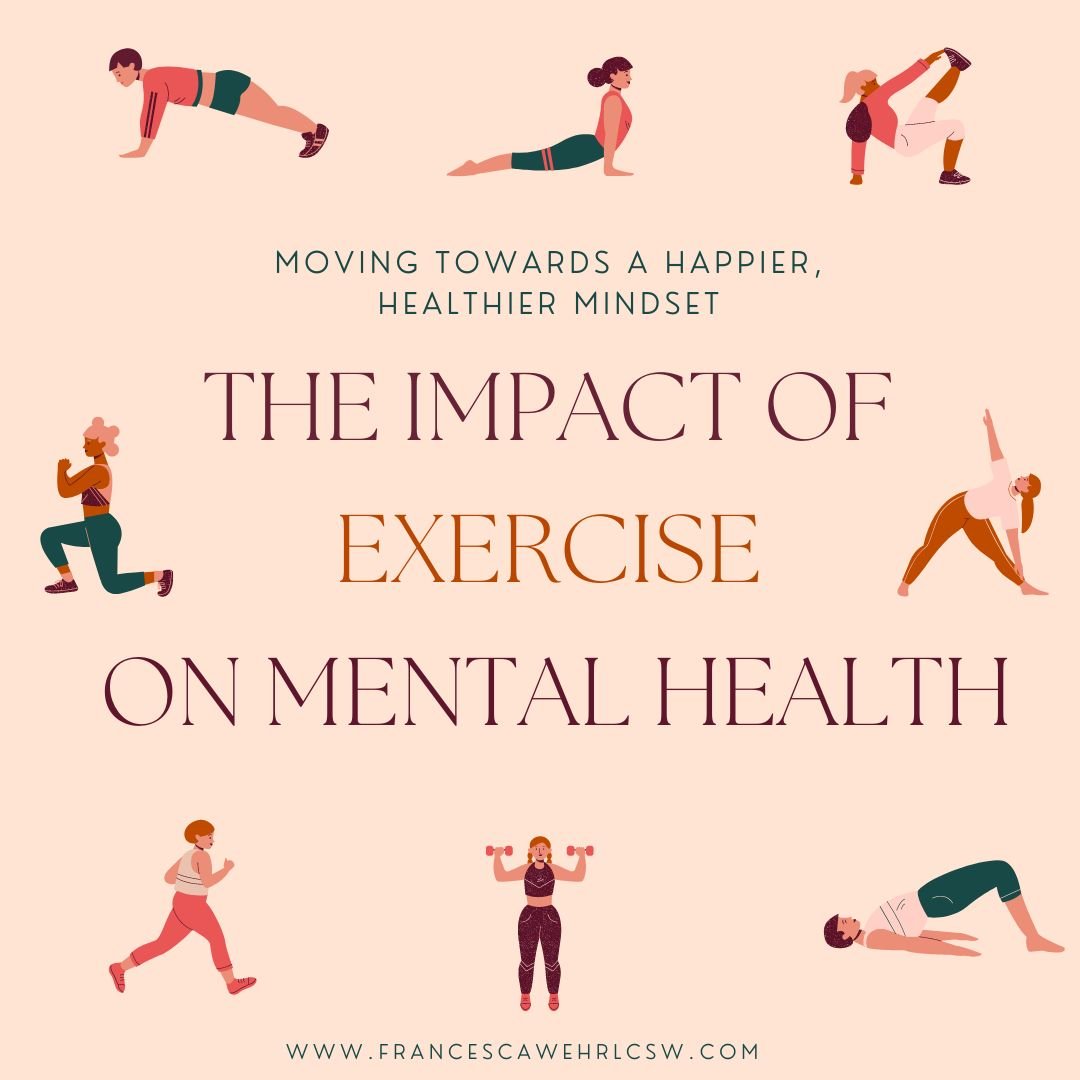
The Impact of Exercise on Mental Health: Moving Towards a Happier, Healthier Mindset
The benefits of regular exercise are well-known, from improved physical health to increased energy levels. However, the impact of exercise on mental health is often overlooked. Engaging in regular physical activity can have a profound effect on our emotional well-being, helping to alleviate stress, anxiety, and depression while promoting a happier, healthier mindset. Francesca Wehr, LCSW Mental Health Counseling explores the various ways exercise can improve mental health and provides practical tips for incorporating physical activity into your daily routine.
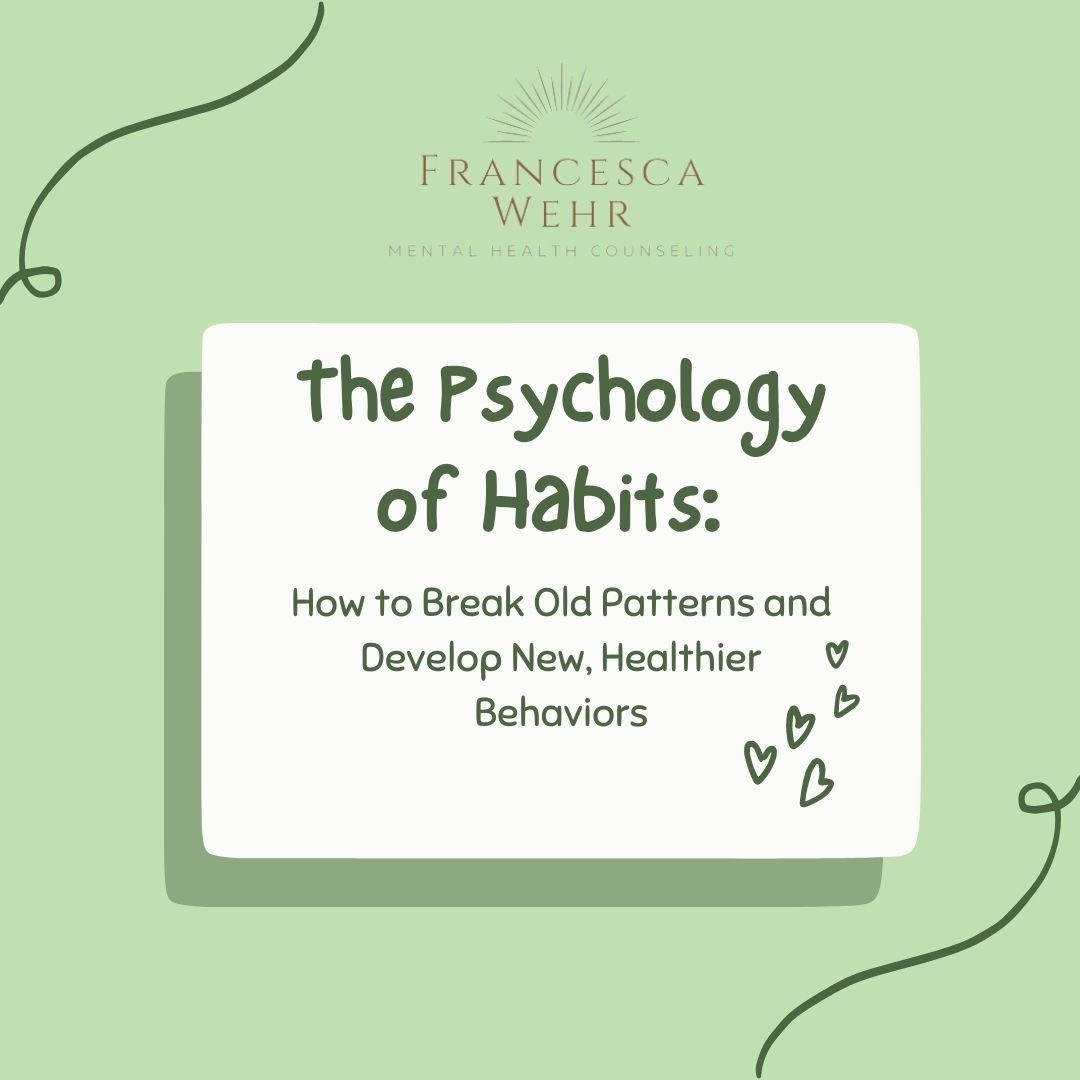
The Psychology of Habits: How to Break Old Patterns and Develop New, Healthier Behaviors
Our daily lives are governed by a series of habits, both good and bad. These automatic behaviors help us navigate through life, but sometimes we find ourselves trapped in unhealthy patterns that hinder our personal growth and well-being. Understanding the psychology of habits can empower us to break free from old patterns and develop new, healthier behaviors. Francesca Wehr, LCSW Mental Health Counseling explores the science behind habit formation and provides practical tips for breaking bad habits and fostering positive change.
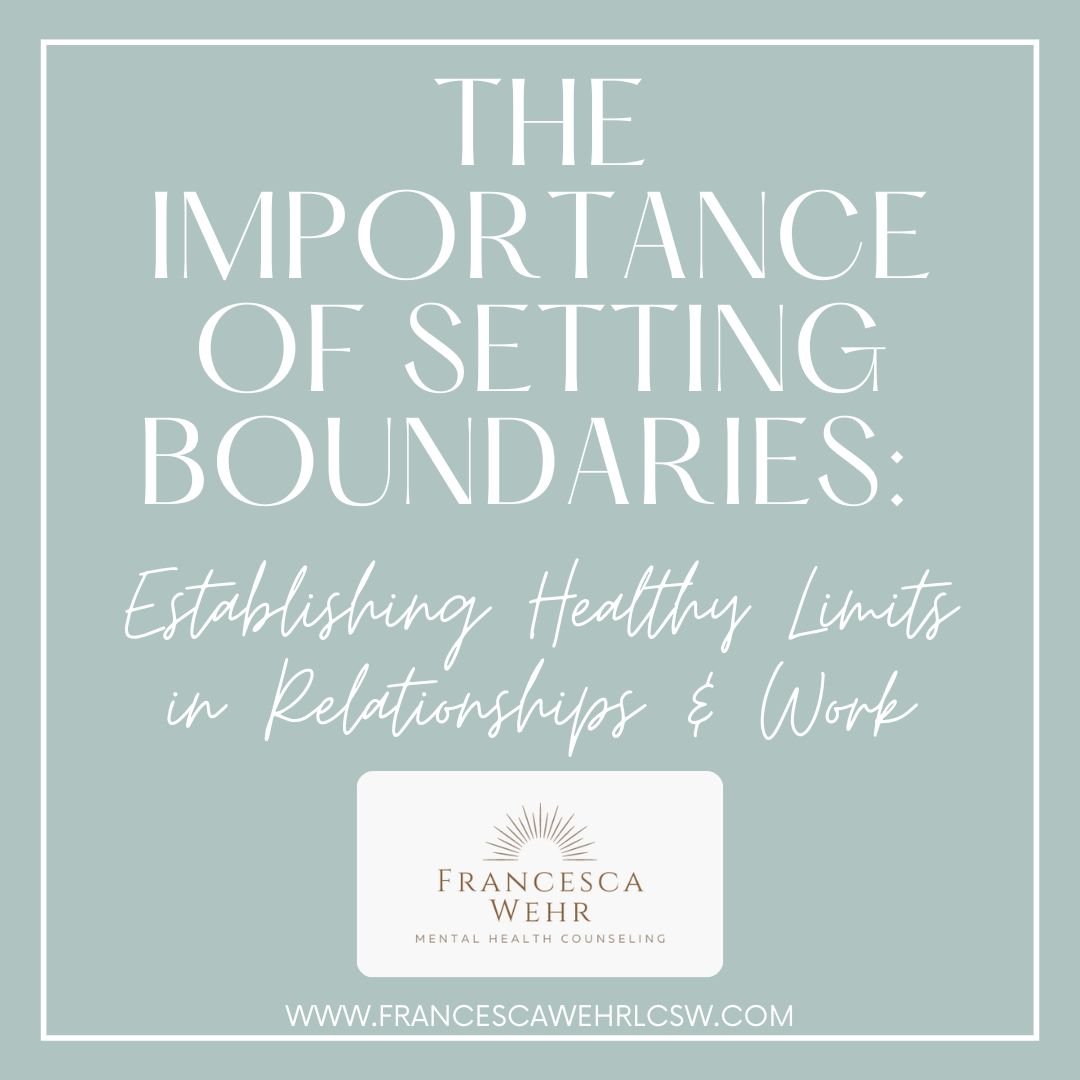
The Importance of Setting Boundaries: Establishing Healthy Limits in Relationships and Work
Setting boundaries is essential for maintaining a healthy balance in our personal and professional lives. Establishing clear and appropriate limits allows us to protect our well-being, manage stress, and foster positive relationships. Francesca Wehr, LCSW Mental Health Counseling discusses the importance of setting boundaries and provides tips for creating healthy boundaries in relationships and at work.

The Role of Nutrition in Mental Health: Exploring the Gut-Brain Connection
A growing body of research highlights the connection between our diet and emotional well-being, particularly through the gut-brain axis. Francesca Wehr, LCSW Mental Health Counseling explores the relationship between diet and mental health, providing evidence-based recommendations for foods that can boost mood, reduce anxiety, and support overall mental well-being.
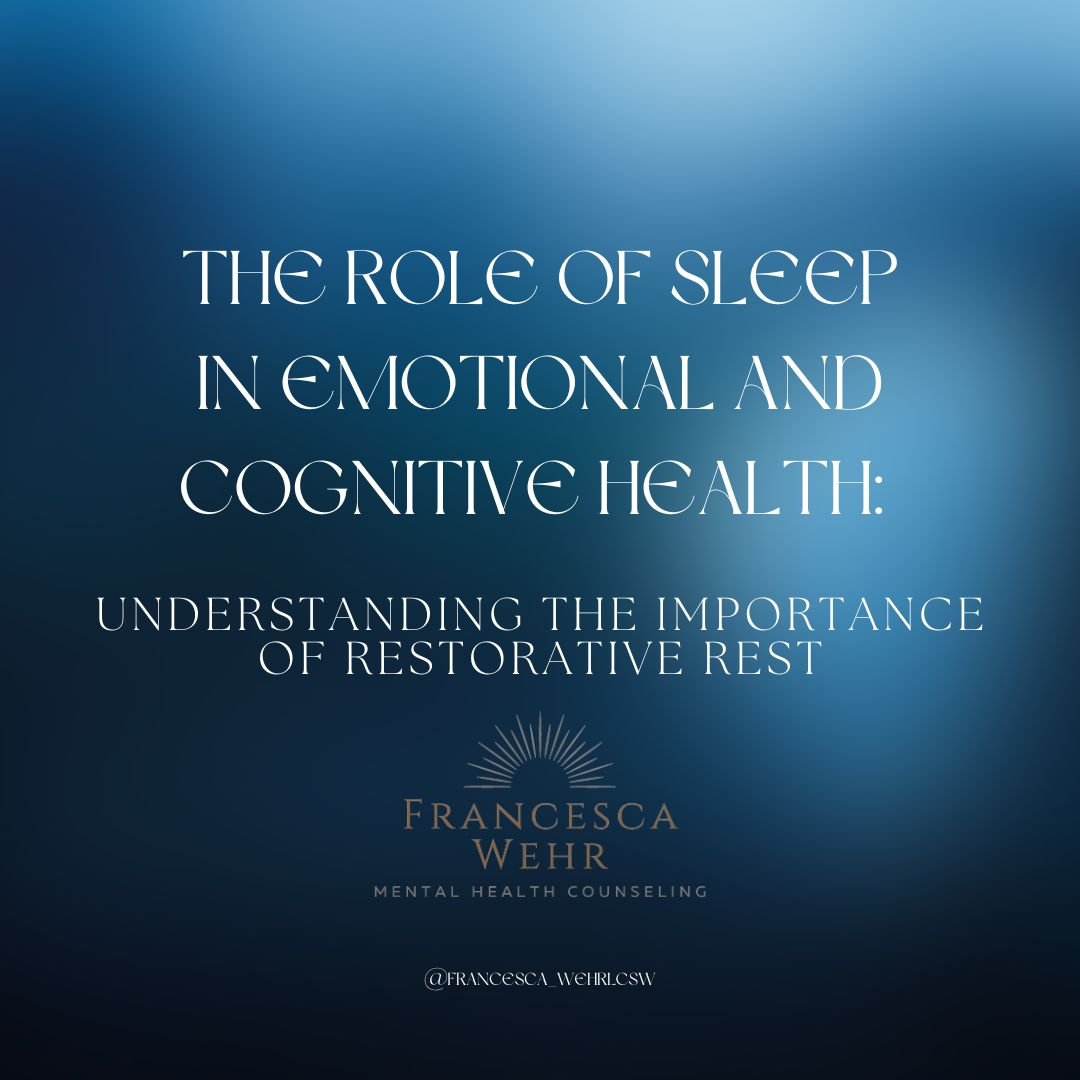
The Role of Sleep in Emotional and Cognitive Health: Understanding the Importance of Restorative Rest
Sleep is a fundamental aspect of human health, playing a crucial role in our emotional and cognitive well-being. Yet, in our fast-paced, technology-driven world, sleep often takes a backseat to other priorities. Francesca Wehr, LCSW Mental Health Counseling explores the connection between sleep and emotional and cognitive health, discuss the consequences of sleep deprivation, and provide tips for achieving better sleep quality for improved mental wellness.
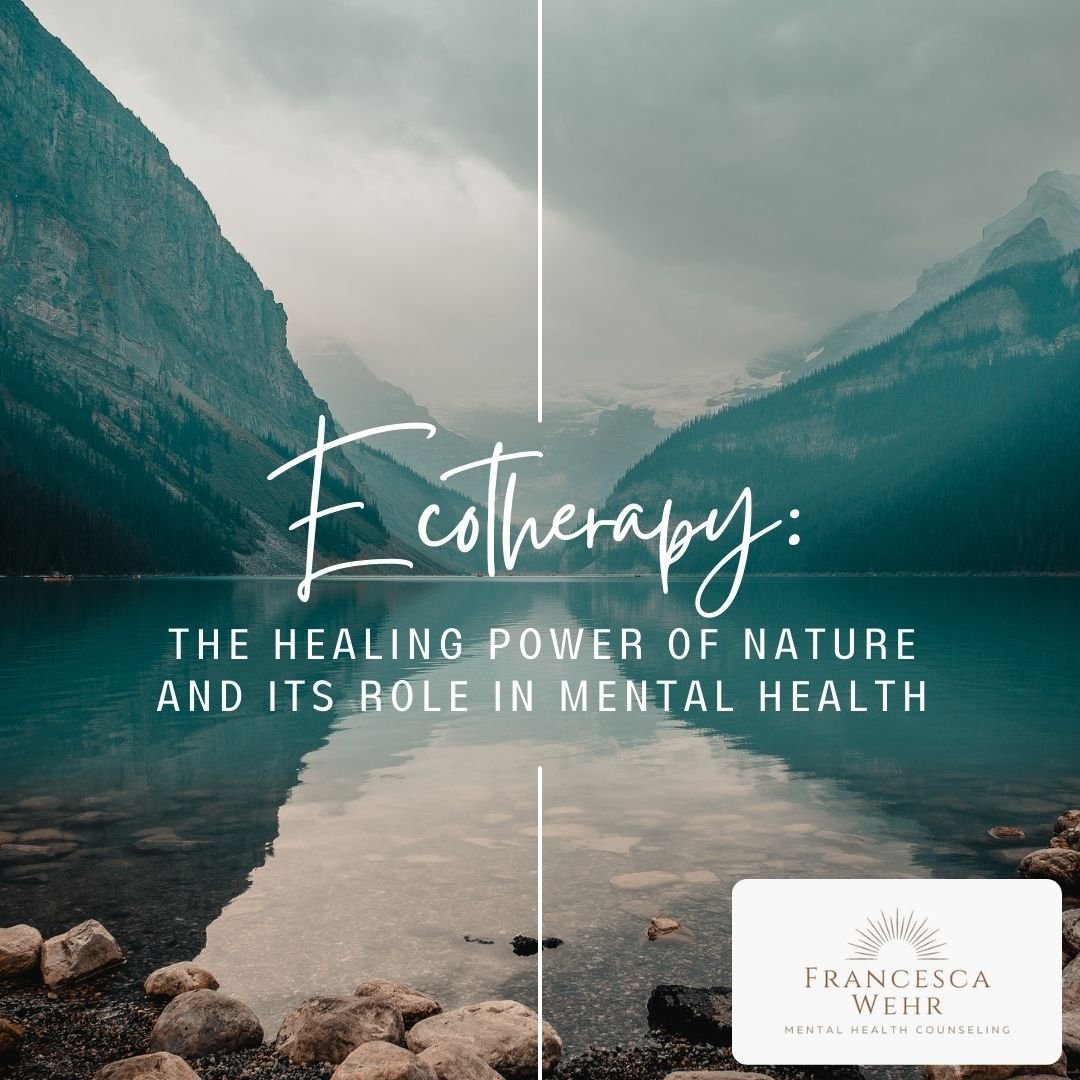
Ecotherapy: The Healing Power of Nature and Its Role in Mental Health
Ecotherapy, also known as nature therapy or green therapy, is a growing field in mental health that emphasizes the healing power of nature and its positive effects on emotional well-being. Research has shown that spending time in natural environments can help reduce stress, improve mood, and enhance cognitive function. Francesca Wehr, LCSW Mental Health Counseling explores the concept of ecotherapy, discuss the benefits of connecting with nature for mental health, and provide tips for incorporating ecotherapy into your daily life.

The Link Between Creativity and Mental Health: Expressing Ourselves for Emotional Well-being
Creativity and mental health are intricately connected, with creative expression playing a vital role in fostering emotional well-being. Engaging in creative activities can help us process emotions, reduce stress, and develop a greater understanding of ourselves and our experiences. Francesca Wehr, LCSW Mental Health Counseling explores the link between creativity and mental health, discuss the benefits of creative expression, and provide tips for incorporating creativity into your daily life.

The Impact of Social Media on Mental Health: Navigating the Digital World with Balance and Awareness
Social media has become an integral part of our daily lives, providing us with countless opportunities to connect, share, and stay informed. However, excessive use of social media platforms can have a negative impact on our mental health and well-being. Francesca Wehr, LCSW Mental Health Counseling explores the effects of social media on mental health, discuss strategies for using social media mindfully, and provide tips for maintaining balance and awareness in the digital world.

The Power of Gratitude: Transforming Your Perspective and Enhancing Your Life
Gratitude is a powerful practice that can shift your perspective, enhance your well-being, and improve your overall quality of life. By focusing on the positive aspects of your life and expressing appreciation for what you have, you can cultivate a mindset of abundance and positivity. Francesca Wehr, LCSW Mental Health Counseling explores the power of gratitude, discuss its mental and emotional benefits, and provide practical tips for incorporating gratitude into your daily routine.

The Art of Forgiveness: Learning to Let Go and Heal from Emotional Pain
Forgiveness is a powerful and transformative tool for healing emotional pain, yet it is often misunderstood and can be challenging to embrace. Forgiving doesn't mean forgetting or condoning hurtful behavior, but rather, it is a conscious decision to release resentment and anger, allowing for personal growth and healing. Francesca Wehr, LCSW Mental Health Counseling explores the art of forgiveness, discuss its mental and emotional benefits, and provides practical tips for cultivating forgiveness in your life.

The Benefits of Mindful Eating: A Journey Towards a Healthier Relationship with Food
In today's fast-paced world, it's all too common for people to eat quickly and without much thought, often leading to overeating, poor food choices, and ultimately, an unhealthy relationship with food. Mindful eating, a practice that involves paying attention to the experience of eating with all our senses, can transform our approach to food and provide numerous physical, mental, and emotional benefits. Francesca Wehr, LCSW Mental Health Counseling explores the benefits of mindful eating and offers practical tips for incorporating this practice into your daily routine.




